-
 Bitcoin
Bitcoin $106,754.6083
1.33% -
 Ethereum
Ethereum $2,625.8249
3.80% -
 Tether USDt
Tether USDt $1.0001
-0.03% -
 XRP
XRP $2.1891
1.67% -
 BNB
BNB $654.5220
0.66% -
 Solana
Solana $156.9428
7.28% -
 USDC
USDC $0.9998
0.00% -
 Dogecoin
Dogecoin $0.1780
1.14% -
 TRON
TRON $0.2706
-0.16% -
 Cardano
Cardano $0.6470
2.77% -
 Hyperliquid
Hyperliquid $44.6467
10.24% -
 Sui
Sui $3.1128
3.86% -
 Bitcoin Cash
Bitcoin Cash $455.7646
3.00% -
 Chainlink
Chainlink $13.6858
4.08% -
 UNUS SED LEO
UNUS SED LEO $9.2682
0.21% -
 Avalanche
Avalanche $19.7433
3.79% -
 Stellar
Stellar $0.2616
1.64% -
 Toncoin
Toncoin $3.0222
2.19% -
 Shiba Inu
Shiba Inu $0.0...01220
1.49% -
 Hedera
Hedera $0.1580
2.75% -
 Litecoin
Litecoin $87.4964
2.29% -
 Polkadot
Polkadot $3.8958
3.05% -
 Ethena USDe
Ethena USDe $1.0000
-0.04% -
 Monero
Monero $317.2263
0.26% -
 Bitget Token
Bitget Token $4.5985
1.68% -
 Dai
Dai $0.9999
0.00% -
 Pepe
Pepe $0.0...01140
2.44% -
 Uniswap
Uniswap $7.6065
5.29% -
 Pi
Pi $0.6042
-2.00% -
 Aave
Aave $289.6343
6.02%
How to switch Coinbase Wallet networks? Operation guide that supports multi-chain switching
Switching networks on Coinbase Wallet is easy: access settings, select 'Active Network,' and choose from Ethereum, Polygon, Bitcoin, Dogecoin, and more.
May 18, 2025 at 09:14 pm
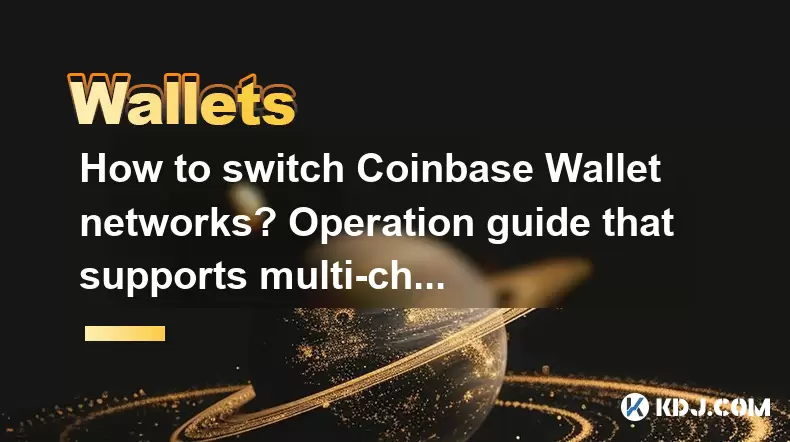
Switching networks on the Coinbase Wallet is a crucial skill for users who wish to interact with different blockchains. Whether you're looking to transfer assets between Ethereum and Polygon or explore the burgeoning world of other supported chains, understanding how to navigate between these networks is essential. This guide will walk you through the steps required to switch networks within the Coinbase Wallet, ensuring you can seamlessly operate across multiple blockchains.
Understanding Coinbase Wallet and Multi-Chain Support
Coinbase Wallet is a self-custody wallet that allows users to store, send, and receive various cryptocurrencies. One of its standout features is its support for multiple blockchain networks, including Ethereum, Polygon, Bitcoin, Dogecoin, and more. This multi-chain functionality enables users to manage their assets across different ecosystems without needing multiple wallets.
Accessing the Coinbase Wallet
To begin switching networks, you first need to access your Coinbase Wallet. Here's how you can do it:
- On Mobile Devices: Open the Coinbase Wallet app on your smartphone. Ensure you have the latest version installed to access all features.
- On Desktop: Navigate to the Coinbase Wallet website and log in to your account using your credentials.
Navigating to the Network Switching Interface
Once you're logged in, you'll need to find the section where you can switch networks. The process is straightforward:
- On Mobile Devices: Tap on the 'Settings' icon, usually located in the top right corner of the app. Scroll down to find the 'Active Network' option.
- On Desktop: Click on the 'Network' dropdown menu at the top of the page, next to your account balance.
Switching Between Networks
Switching networks is a simple process once you're at the right interface. Here's how to do it:
On Mobile Devices:
- Tap on the 'Active Network' option.
- A list of available networks will appear, such as Ethereum, Polygon, Bitcoin, Dogecoin, and others.
- Select the network you wish to switch to by tapping on it. The app will refresh, and you'll now be operating on the selected network.
On Desktop:
- Click on the 'Network' dropdown menu.
- Choose the desired network from the list, such as Ethereum, Polygon, Bitcoin, Dogecoin, etc.
- The page will reload, and you'll be on the new network.
Verifying the Network Switch
After switching networks, it's important to verify that the change has taken effect:
- On Mobile Devices: Check the top of the screen where the network name should now reflect your chosen network.
- On Desktop: The network name should be updated in the 'Network' dropdown menu, and the page should reflect assets and transactions relevant to the new network.
Managing Assets Across Different Networks
Once you've switched networks, you can manage your assets specific to that blockchain. Here's what you can do:
- Sending and Receiving Assets: Use the 'Send' and 'Receive' options to transfer assets on the current network.
- Viewing Balances: Your asset balances will update to show only those relevant to the active network.
- Interacting with dApps: You can connect to decentralized applications (dApps) that are built on the current network.
Troubleshooting Common Issues
Sometimes, you might encounter issues when switching networks. Here are some common problems and their solutions:
- Network Not Appearing: Ensure your app or browser is updated to the latest version. If a network is missing, it might not be supported yet.
- Slow Loading: Refresh the page or restart the app. If the problem persists, check your internet connection.
- Transaction Issues: Ensure you're on the correct network for the transaction you're trying to make. Sending assets to an address on a different network can result in loss of funds.
FAQs
Q: Can I switch networks on Coinbase Wallet without losing my assets?
A: Yes, switching networks within Coinbase Wallet does not affect your assets. Your assets remain safe and are simply displayed according to the network you're currently on.
Q: Are there any fees associated with switching networks on Coinbase Wallet?
A: No, there are no fees for switching networks within Coinbase Wallet. However, you may incur transaction fees when sending assets between networks or using dApps.
Q: How can I add a new network to Coinbase Wallet if it's not listed?
A: Currently, Coinbase Wallet supports a predefined list of networks. If a network you want to use is not listed, you might need to wait for Coinbase to add support for it or use a different wallet that supports the desired network.
Q: Can I use the same Coinbase Wallet address across different networks?
A: No, each network has its own unique address format. When switching networks, you'll need to use the appropriate address for that network to send or receive assets.
Disclaimer:info@kdj.com
The information provided is not trading advice. kdj.com does not assume any responsibility for any investments made based on the information provided in this article. Cryptocurrencies are highly volatile and it is highly recommended that you invest with caution after thorough research!
If you believe that the content used on this website infringes your copyright, please contact us immediately (info@kdj.com) and we will delete it promptly.
- BONK, Ethereum, and AI Utility: A New Era?
- 2025-06-21 12:25:12
- Bitcoin Price Prediction: Will BTC Bounce Back or Break Down?
- 2025-06-21 12:25:12
- BONK Price Prediction: Will the Meme Coin Rebound?
- 2025-06-21 12:30:12
- Bitcoin's $100K-$110K Range: Short Interest Heats Up!
- 2025-06-21 12:45:12
- CoinMarketCap Under Fire: Wallet Scam Highlights Malicious Activity
- 2025-06-21 12:45:12
- Bitcoin, Hedge Funds, and Eric Semler: A Wall Street Waltz?
- 2025-06-21 10:45:11
Related knowledge
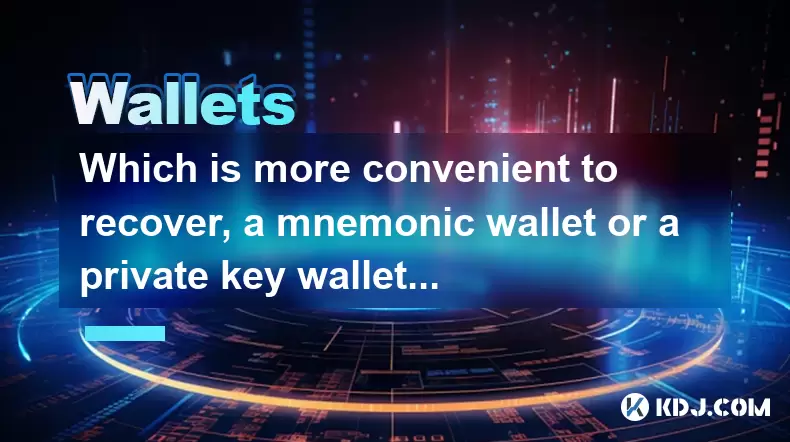
Which is more convenient to recover, a mnemonic wallet or a private key wallet? Will security be compromised?
Jun 20,2025 at 06:36am
Understanding Mnemonic Wallets and Private Key WalletsIn the world of cryptocurrency, wallet recovery is a crucial aspect that users must understand before storing digital assets. Two popular methods for securing and recovering wallets are mnemonic phrases and private keys. Both serve as gateways to access funds, but they differ significantly in terms o...
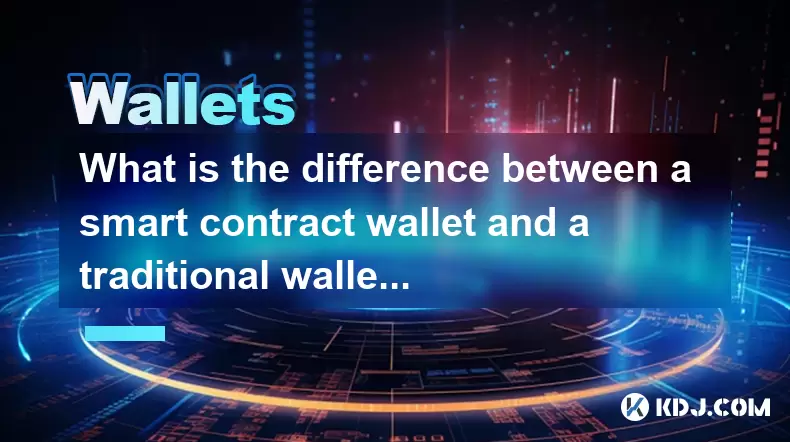
What is the difference between a smart contract wallet and a traditional wallet? In which scenarios must it be used?
Jun 21,2025 at 10:28am
Understanding Smart Contract Wallets and Traditional WalletsIn the cryptocurrency ecosystem, wallets are essential tools for managing digital assets. However, not all wallets operate in the same way. Two primary types of crypto wallets exist: smart contract wallets and traditional wallets. Each has distinct characteristics that make them suitable for sp...

How do observation wallets and signature wallets work together? What application scenarios are suitable?
Jun 20,2025 at 03:56pm
Understanding Observation Wallets and Signature WalletsIn the world of cryptocurrency, managing digital assets securely is crucial. Two types of wallets — observation wallets and signature wallets — play distinct roles in this process. An observation wallet allows users to monitor blockchain activity without holding private keys, meaning it cannot initi...
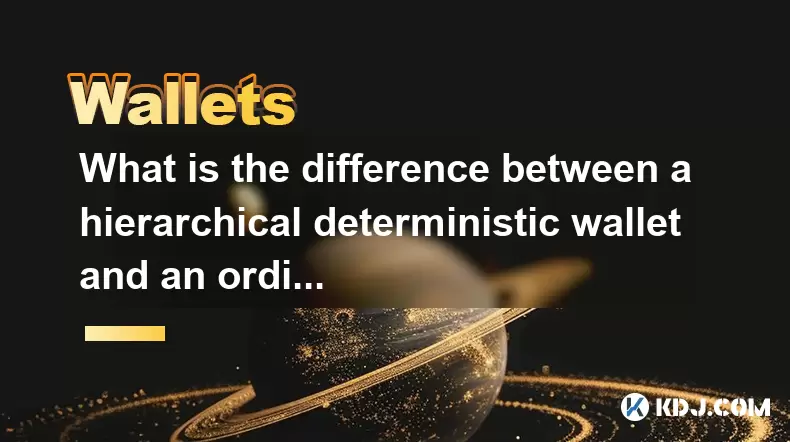
What is the difference between a hierarchical deterministic wallet and an ordinary wallet?
Jun 19,2025 at 07:14pm
Understanding the Basics of Cryptocurrency WalletsCryptocurrency wallets are tools used to store, send, and receive digital currencies like Bitcoin or Ethereum. These wallets do not actually hold the coins themselves but instead manage the private and public keys necessary for accessing blockchain assets. There are different types of wallets, such as so...
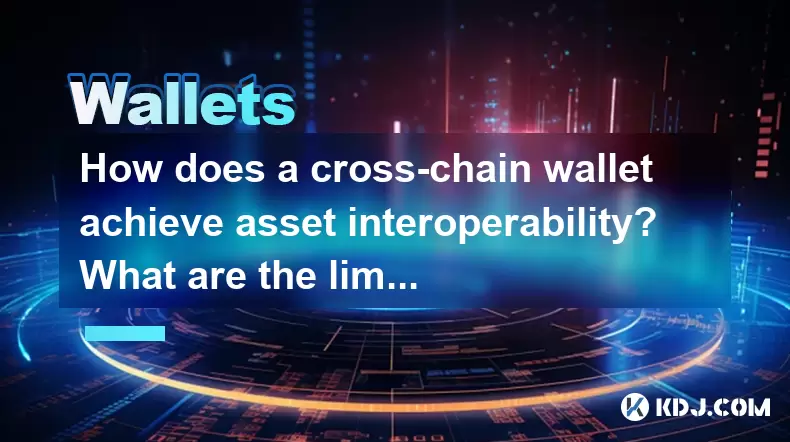
How does a cross-chain wallet achieve asset interoperability? What are the limitations compared with traditional wallets?
Jun 20,2025 at 03:36am
Understanding Cross-Chain Wallets and Their Core FunctionalityA cross-chain wallet is a digital wallet that allows users to manage assets across multiple blockchain networks seamlessly. Unlike traditional wallets, which are typically designed for a single blockchain (e.g., Ethereum or Bitcoin), cross-chain wallets leverage interoperability protocols to ...
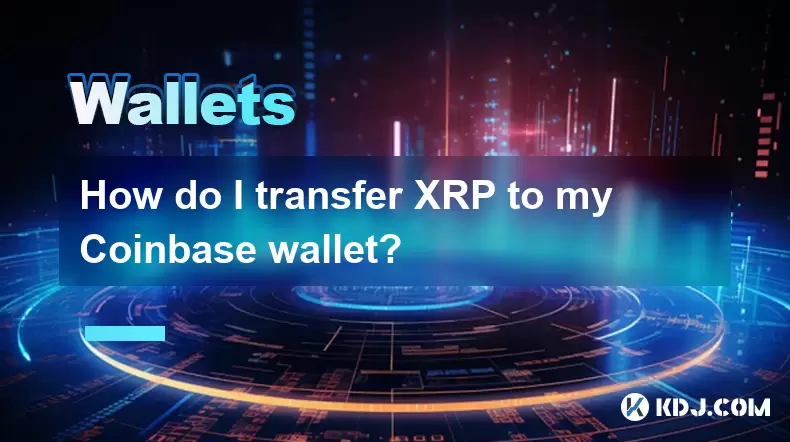
How do I transfer XRP to my Coinbase wallet?
Jun 16,2025 at 04:57pm
Understanding the Basics of XRP and Coinbase CompatibilityBefore initiating any transfer, it’s essential to confirm whether Coinbase supports XRP. As of recent updates, Coinbase has resumed offering XRP trading services on its platform after a period of uncertainty due to legal issues involving Ripple Labs. However, availability may vary depending on yo...

Which is more convenient to recover, a mnemonic wallet or a private key wallet? Will security be compromised?
Jun 20,2025 at 06:36am
Understanding Mnemonic Wallets and Private Key WalletsIn the world of cryptocurrency, wallet recovery is a crucial aspect that users must understand before storing digital assets. Two popular methods for securing and recovering wallets are mnemonic phrases and private keys. Both serve as gateways to access funds, but they differ significantly in terms o...

What is the difference between a smart contract wallet and a traditional wallet? In which scenarios must it be used?
Jun 21,2025 at 10:28am
Understanding Smart Contract Wallets and Traditional WalletsIn the cryptocurrency ecosystem, wallets are essential tools for managing digital assets. However, not all wallets operate in the same way. Two primary types of crypto wallets exist: smart contract wallets and traditional wallets. Each has distinct characteristics that make them suitable for sp...

How do observation wallets and signature wallets work together? What application scenarios are suitable?
Jun 20,2025 at 03:56pm
Understanding Observation Wallets and Signature WalletsIn the world of cryptocurrency, managing digital assets securely is crucial. Two types of wallets — observation wallets and signature wallets — play distinct roles in this process. An observation wallet allows users to monitor blockchain activity without holding private keys, meaning it cannot initi...

What is the difference between a hierarchical deterministic wallet and an ordinary wallet?
Jun 19,2025 at 07:14pm
Understanding the Basics of Cryptocurrency WalletsCryptocurrency wallets are tools used to store, send, and receive digital currencies like Bitcoin or Ethereum. These wallets do not actually hold the coins themselves but instead manage the private and public keys necessary for accessing blockchain assets. There are different types of wallets, such as so...

How does a cross-chain wallet achieve asset interoperability? What are the limitations compared with traditional wallets?
Jun 20,2025 at 03:36am
Understanding Cross-Chain Wallets and Their Core FunctionalityA cross-chain wallet is a digital wallet that allows users to manage assets across multiple blockchain networks seamlessly. Unlike traditional wallets, which are typically designed for a single blockchain (e.g., Ethereum or Bitcoin), cross-chain wallets leverage interoperability protocols to ...

How do I transfer XRP to my Coinbase wallet?
Jun 16,2025 at 04:57pm
Understanding the Basics of XRP and Coinbase CompatibilityBefore initiating any transfer, it’s essential to confirm whether Coinbase supports XRP. As of recent updates, Coinbase has resumed offering XRP trading services on its platform after a period of uncertainty due to legal issues involving Ripple Labs. However, availability may vary depending on yo...
See all articles

























































































